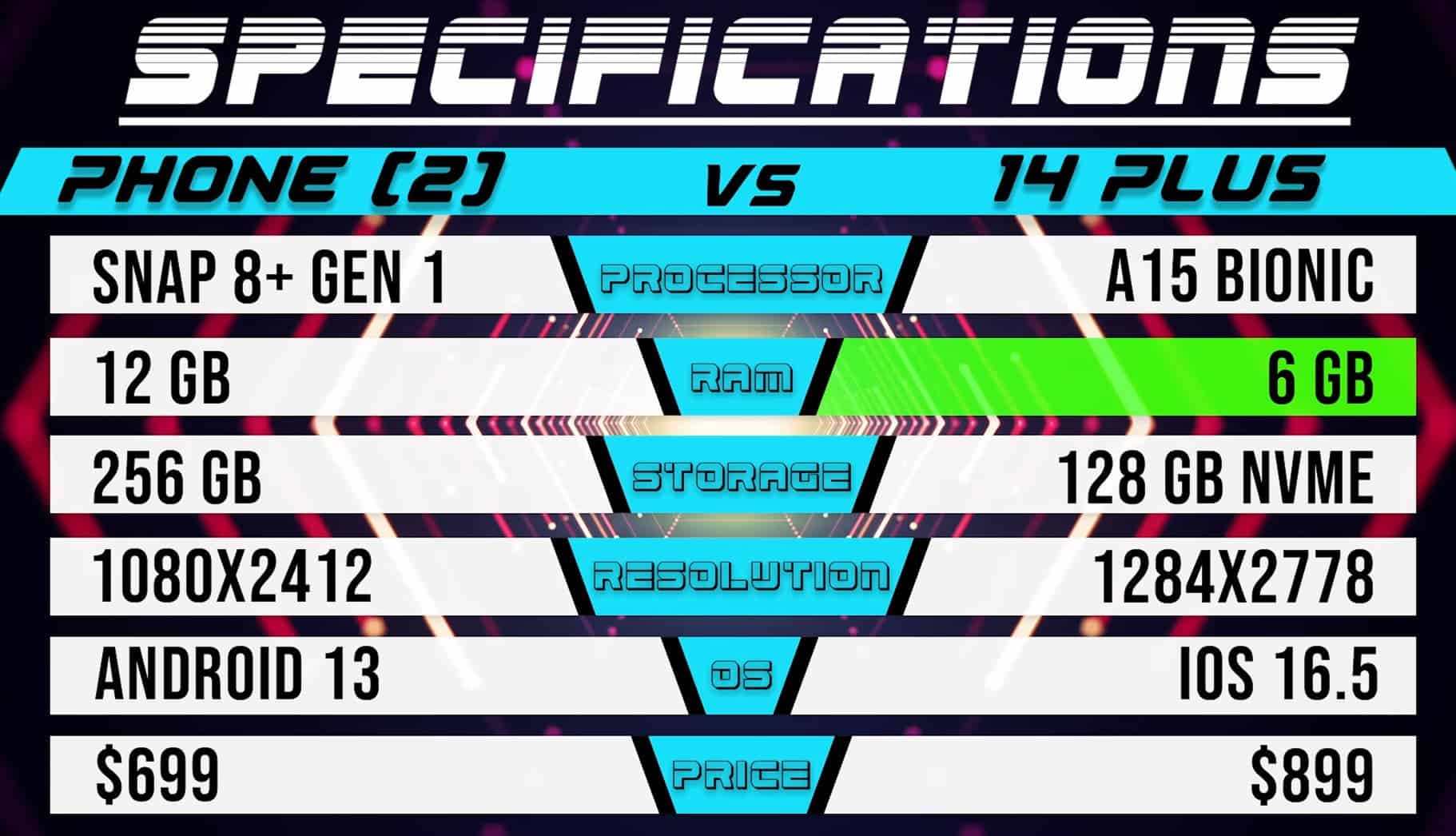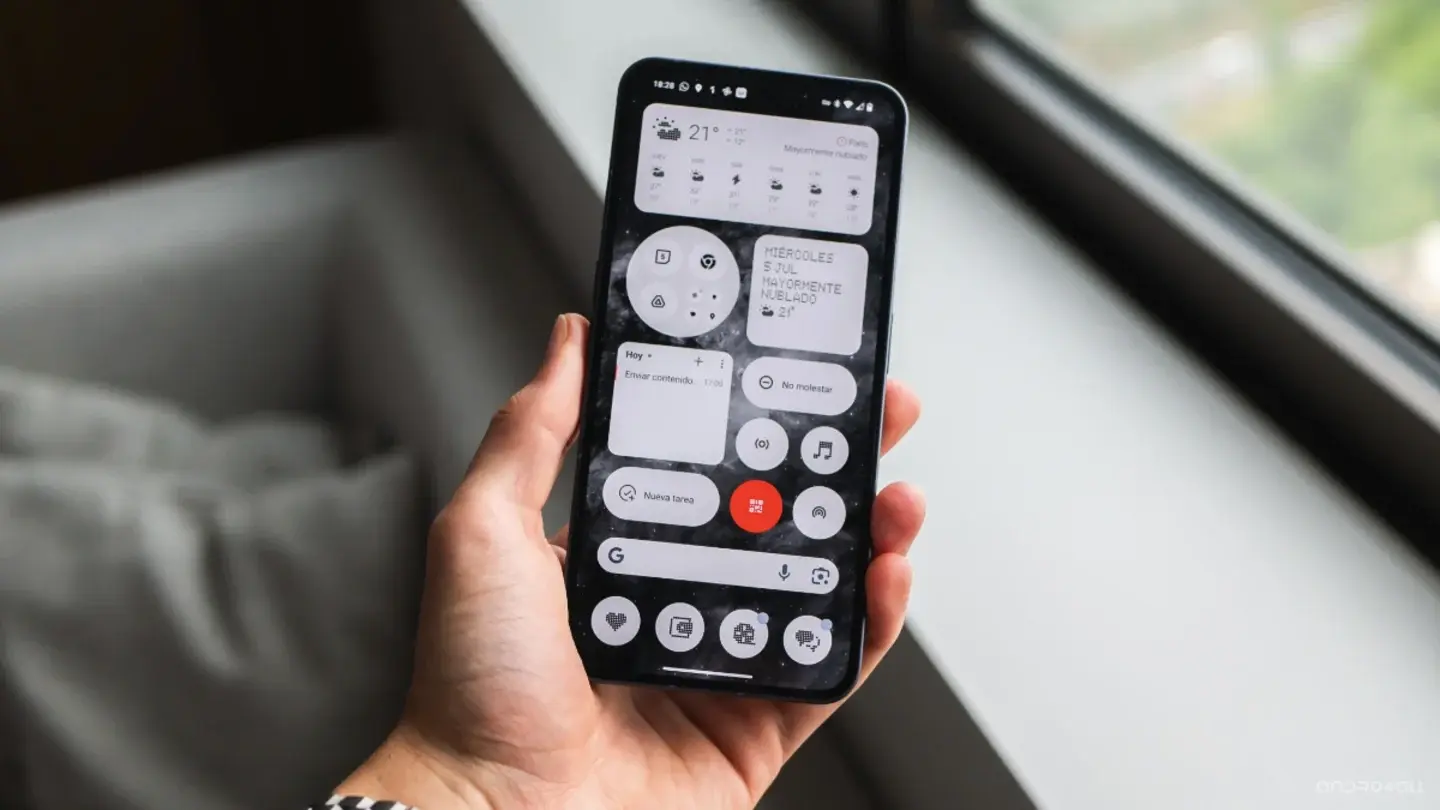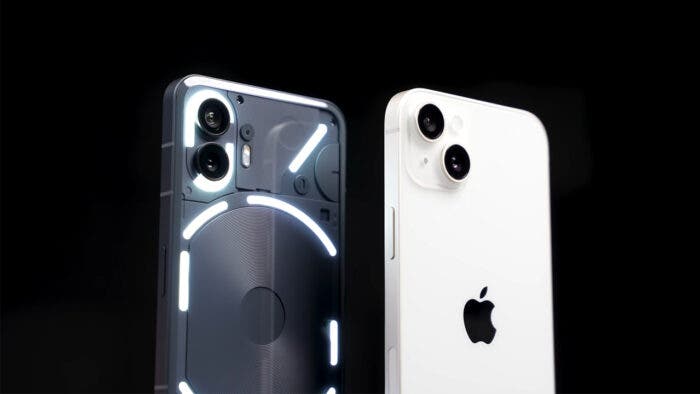Nothing Phone (2) became official just a few days ago. And as it is regarded as a flagship device, comparisons with the other current flagships are pretty much inevitable. But you cannot forget that the device does not come with the latest flagship chipset. So, it definitely has a disadvantage in terms of performance.
However, at the end of the day, the latest flagship chipset can only do much. Yes, you will get better scores in benchmark tools. But without comprehensive optimization, a device with the latest and greatest hardware will not offer great real-world performance. In fact, solid optimization can make a device with a previous-generation chipset deliver better results.
That’s exactly what the latest speed test putting Nothing Phone (2) against the iPhone 14 Plus showcased.
Nothing Phone (2) Proves That Optimization Plays a Major Role
One thing to note about the speed test is that it included Nothing Phone (2) with 12GB of LPDDR5 RAM. In comparison, the base model of the phone ships with 8GB of memory. So, if the test was with the base model, the results might have been different.
Nonetheless, as you can see from the video embedded above, Nothing Phone (2) is slightly faster than iPhone 14 Plus in terms of real-world performance. It can handle everyday apps with great speed. The same thing applies to productivity apps such as the image editing app Snapseed and the document editing app Microsoft Word.

However, the iPhone 14 Plus made a major comeback in terms of exporting videos with video editing apps. After all, the Nothing Phone (2) features a comparatively inferior chipset than the iPhone. So, it’s quite understandable why iPhone takes a massive leap in terms of resource-intensive apps.

But Nothing Phone (2) still managed to beat iPhone 14 Plus with an overall score of 2 minutes 50 seconds in the test. In comparison, the iPhone took 2 minutes 56 seconds. Yes, the difference is not massive. But it shows how much of an impact optimized hardware and software can have on real-life performance.





